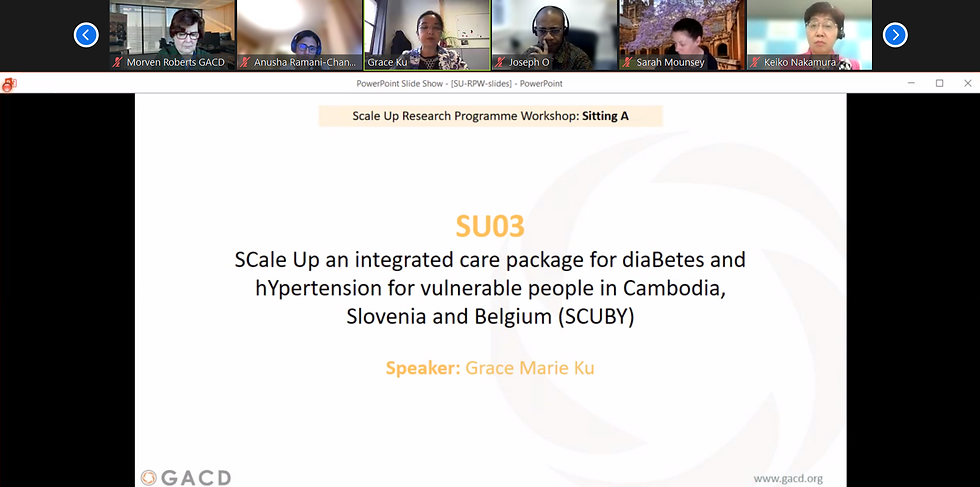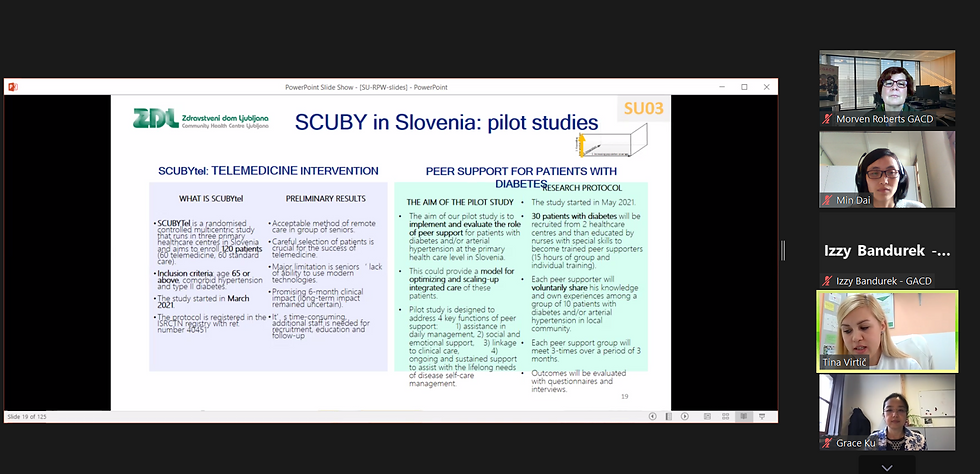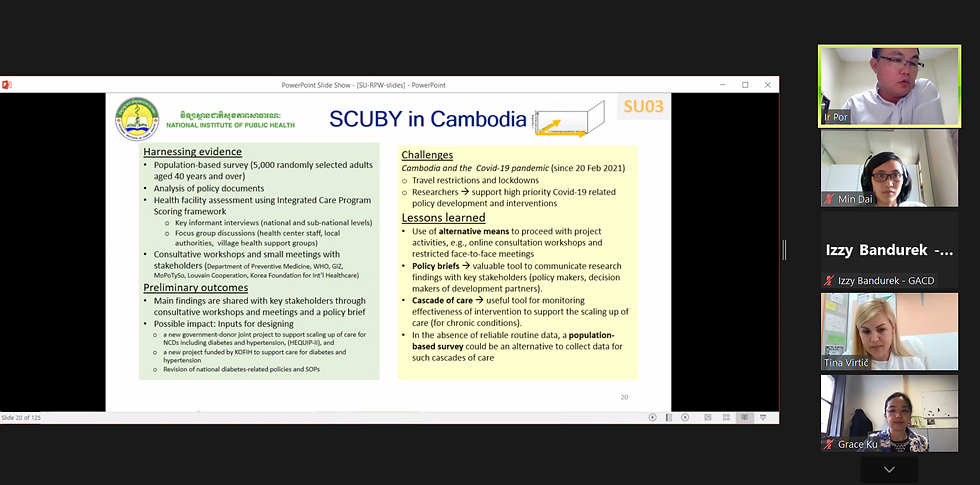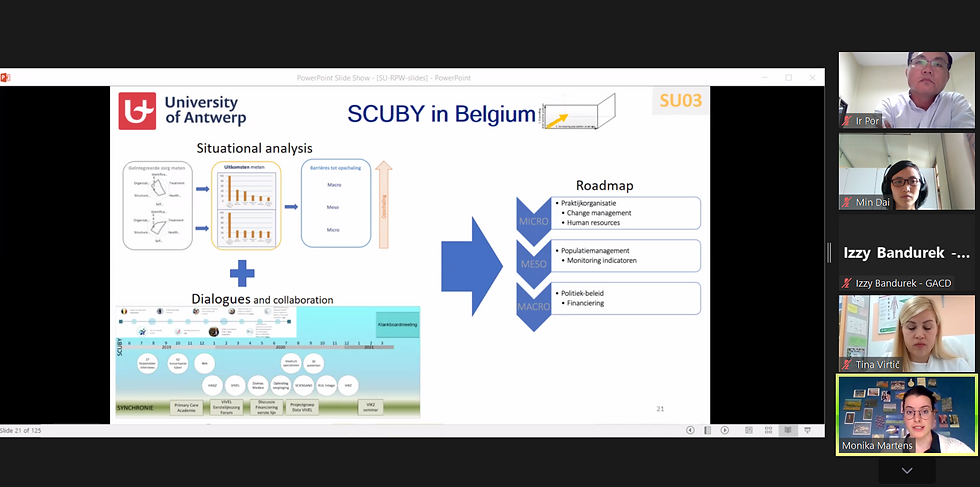We presented annual updates of SCUBY at the GACD (Global Alliance for Chronic Diseases) 2021 Annual Scientific Meeting Research Programme Workshop on 14 October 2021.
Grace Marie Ku presented the overview of the project, briefly describing the objectives, the scaling-up framework and implementation in the three countries. Country-specific updates were provided by Tina Virtic (for Slovenia), Ir Por (for Cambodia), and Monika Martens (for Belgium).

Tina presented the two research studies implemented this year in Slovenia: SCUBYtel, a telemedicine intervention for people aged 65 years or more with comorbid hypertension and type II diabetes; and the implementation and evaluation of the role of peer support for patients with diabetes and/or arterial hypertension at the primary health care level.

Por shared activities and preliminary results in Cambodia and the challenges encountered due to the ongoing pandemic. He also presented the lessons learned including use of alternative means to proceed with project activities (e.g., online consultation workshops and restricted face-to-face meetings); the value of policy briefs as a tool to communicate research findings with key stakeholders (policy makers, decision makers of development partners); the usefulness of the cascade of care for monitoring effectiveness of the intervention to support the scaling up of care for chronic conditions; and using a population-based survey as an alternative to collect data for such cascades of care, in the absence of reliable routine data.

Monika described how the Belgium team conducted a situational analysis and involved various actors and stakeholders in dialogues and to collaborate in the production of a roadmap. The current roadmap in scaling-up integration of care for DM Type 2 and hypertension in Belgium takes into consideration the different levels: addressing change management and human resources in the organization of primary care practices at the micro level; health information systems and the monitoring of indicators at the meso level; and health financing at the macro level.

Attendees welcomed the format of having a team (as against a single person) presenting the updates; they showed great interest in the peer support study and in the policy briefs utilized in communicating with stakeholders.

Comments